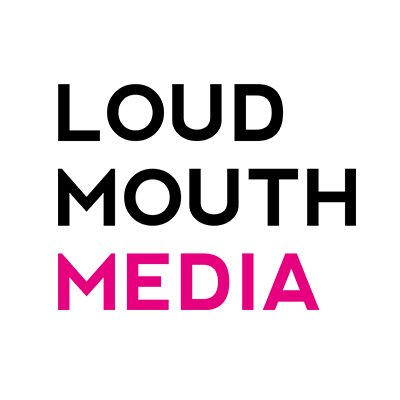
The evolution of SEO and PPC: 3 tips for brands looking to maximise sales
They say nothing ages as quickly as yesterday’s vision of the future and this is especially true about digital technology, which is performing an increasingly crucial role for businesses across all industries.
Search Engine Optimisation (SEO) in particular has proven to be key to the success of any modern company. Not only is SEO capable of increasing a business’s visibility and reach online, but it can also help boost sales by driving more traffic to a website, providing valuable opportunities to convert leads into customers.
Additionally, a well-structured Pay-Per-Click (PPC) campaign is also able to increase website traffic, conversions and ultimately revenue, with the strategic placement of ads in front of actively engaged buyers at the moment they are searching for a product or service online.
SEO and PPC should be viewed as complementary channels, not competing. Both channels have their strengths and both have an integral role to play in the delivery of a successful online marketing campaign. But how can brands harness the full potential of these two potentially lucrative digital assets?
Combining PPC and SEO boosts visibility in search results
When used together, PPC and SEO can increase a website’s visibility. Having both a PPC listing and organic SEO listing has a huge impact on your audience, as if they keep seeing your business in the search results, they will be more inclined to click the link to find out more.
Using both SEO and PPC can determine which words are benefiting a site and which words may be holding it back, which is invaluable when looking for tested keywords for SEO as often sites may describe what they are offering in a different way than what potential customers are searching for.
Increased visibility creates more opportunities for websites to earn traffic, driving more valuable leads to your page and helping your page rank higher in the results.
Even when your organic listing makes it to the first page of search results, search engine algorithms are constantly changing and it’s important that you don’t stop running the PPC ads as staying in the top spot is not guaranteed. Only when running a PPC ad consistently can an organisation ensure that they have ongoing exposure that is guiding more leads to its pages.
SEO and PPC work better together
SEO and PPC create the best of both worlds by combining high-converting PPC and long-lasting SEO. An example of this is testing the success of keywords, as monitoring and analysing keywords for SEO works well when you put paid search behind it. Using both SEO and PPC can determine which words are benefiting a site and which words may be holding it back, which is invaluable when looking for tested keywords for SEO.
PPC and SEO together produce more data and allow users to accurately shape the future of a campaign. More importantly, it is key to examine the same metrics across both SEO and PPC campaigns. These could include conversion rate, time spent on the site, click-through rate and bounce rate.
Having access to the data from both PPC and SEO will not only reveal effective keywords but also single out the ones that are sending invaluable leads to the site. Although some data can be seen on the platforms individually, together the results are more powerful, with a tailored PPC landing page able to feed insights into another page that will be ranking in the organic search results. Tools like Google Optimise, Optimizely and Hotjar are also beneficial when it comes to deciding which CTAs, module prominence or content style is better for engaging users and guiding them into taking the next steps.
When it comes to remarketing campaigns, you may find that SEO is bringing traffic to your site but that is where the activity stops. This is where PPC can offer additional support, as purchasing ad space on relevant websites encourages your visitors to return to your page using ads for your site so that they return and finish their purchase.
The importance of a good quality score
In order to fully understand PPC, especially Google Ads, users will need a solid understanding of the quality score. A site’s quality score has enormous influence over the cost and effectiveness of paid search campaigns, just as a credit score can affect you in real life, with a Google Quality Score affecting how your PPC ads perform and how much you pay for each click.
A quality score is Google's rating of the quality and relevance of a website’s keywords and PPC ads. For accurate results, the quality score is made up of multiple factors, including Click-Through Rate (CTR), keyword significance, landing page quality, the relevance of your ad text and historical Google Ads account performance.
These are the core quality score components, and although the exact quality score algorithm is kept tightly under wraps at Google, it is well known that click-through rate is the most important component. When more people who see your ad click it, that’s a strong indication to Google that your ads are relevant and helpful to users, which equals higher ad rankings at lower costs.
Quality scores have a direct correlation with your success in Google Ads and Microsoft Ads. By optimising quality scores, sites are setting themselves up for higher Return On Investment (ROI), as higher quality scores correlate with a lower cost per conversion. Cost per conversion differs from cost per click, as it’s not about how much you pay for each click but how much you pay when someone takes the action you want them to take. This could be signing up for a free trial or making a product purchase. As not every click results in a conversion, cost per conversion is generally higher than cost per click.
Put simply, the higher the quality score in Google Ads and Microsoft Ads, the lower your cost per conversion. As mentioned earlier, a high quality score is a way Google shows that the PPC ad meets your potential customers’ needs. The better you are at meeting these, the less Google will charge you for the ad click.
Break down your SEO and PPC silos
PPC conversion data is powerful, and when matched with the keywords needed to meet your SEO goals, will make the biggest difference to your organic search traffic - including brand awareness, engagement, and net-new customer acquisition.
If your SEO (search engine optimisation) and PPC (Pay-Per-Click) teams exist in complete silos, it's time to change that. These channels aren't meant to be kept separate, and aligning them is one of the most underrated ways to improve overall digital marketing performance.
PPC is one of SEO's most powerful tools - and vice versa. It's no longer about SEO vs. PPC, but a more holistic approach to search marketing, increasing your competitive advantage across your best-performing channels and reaching your target customers exactly when (and how) they are looking for you.
If we’ve learned anything in the last year, it’s the importance of having a competitive and well-performing online presence. And in the immediate and long term future these requirements will only grow, meaning websites need to take advantage of these tools or face being left behind.


